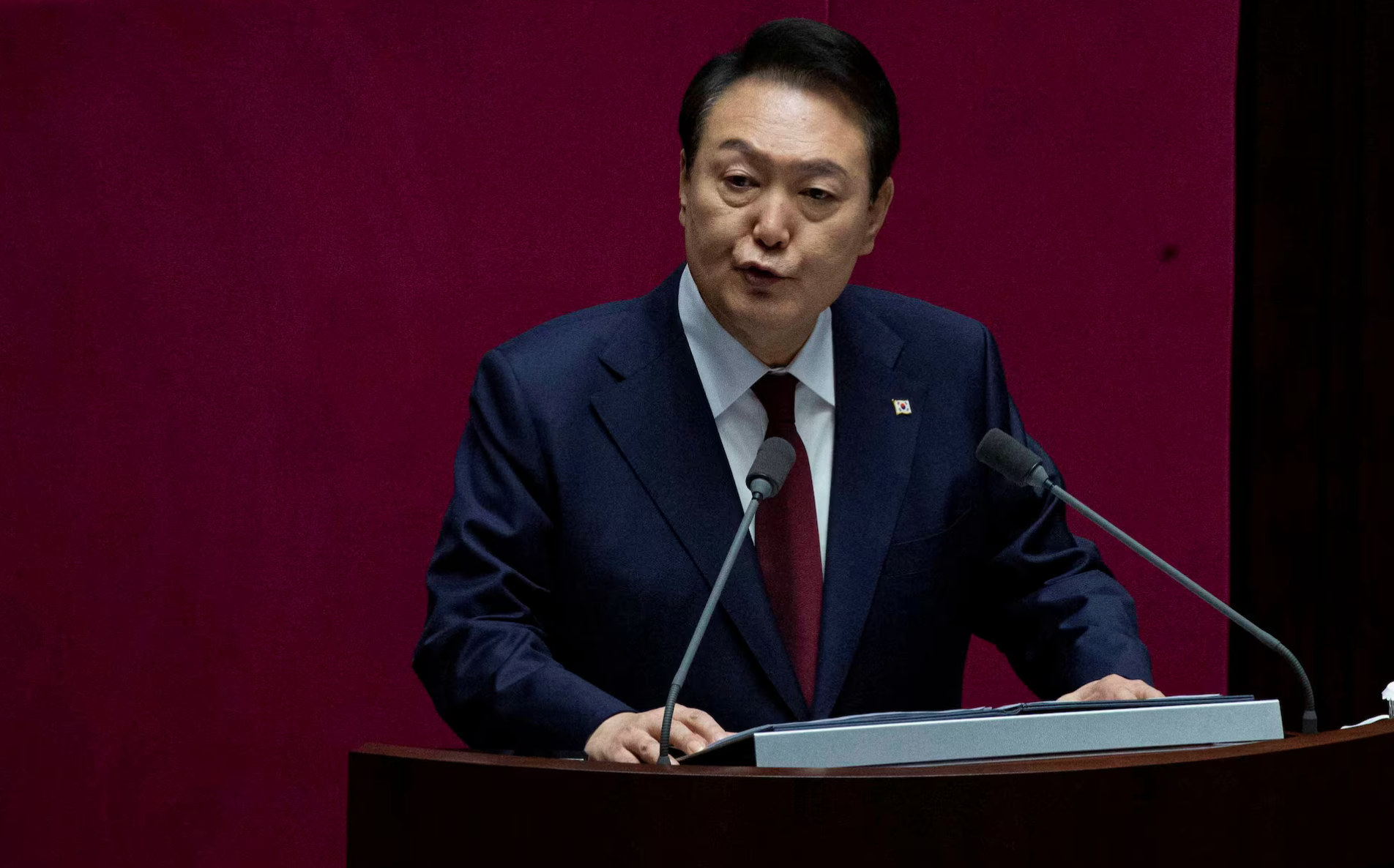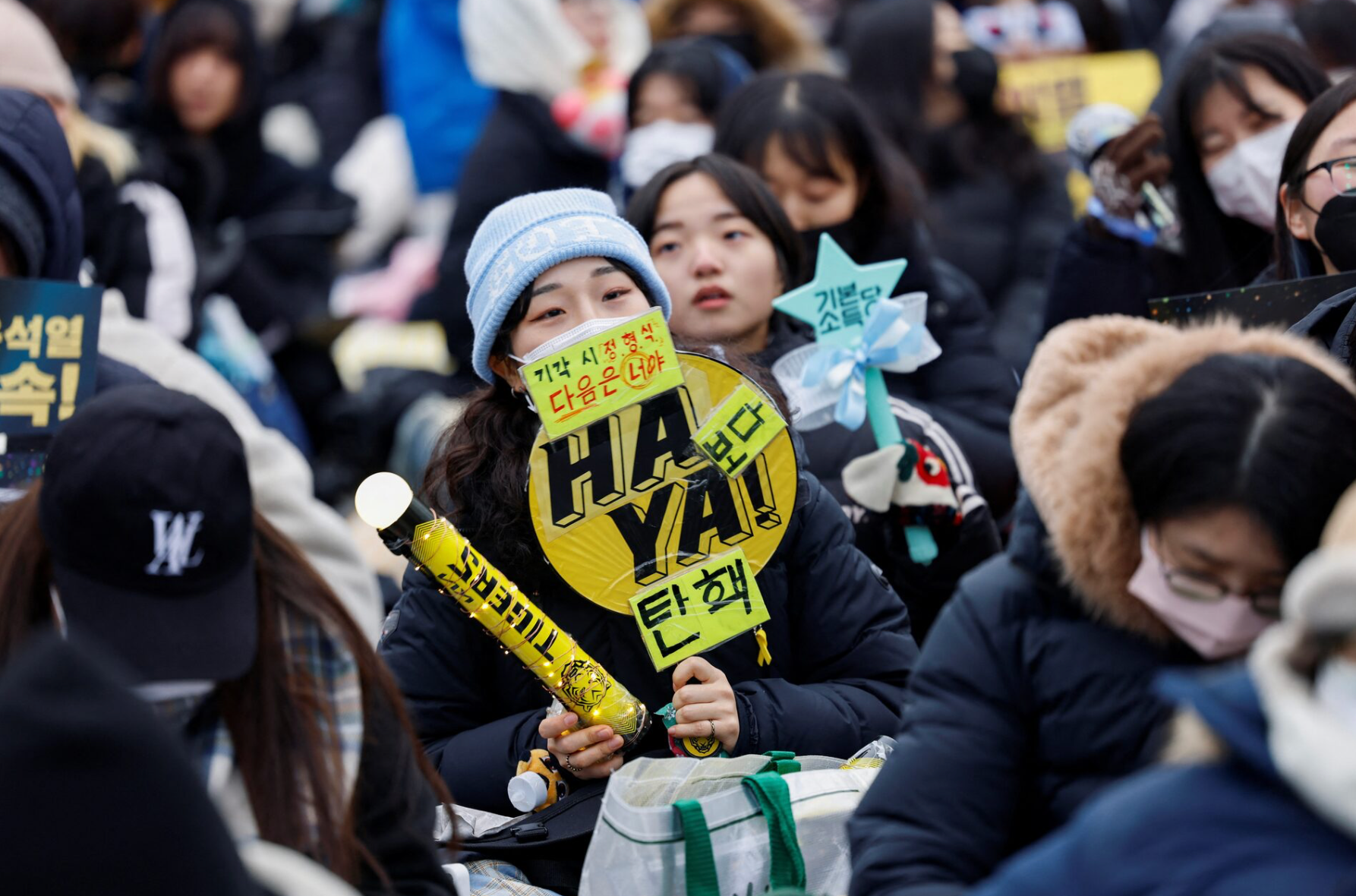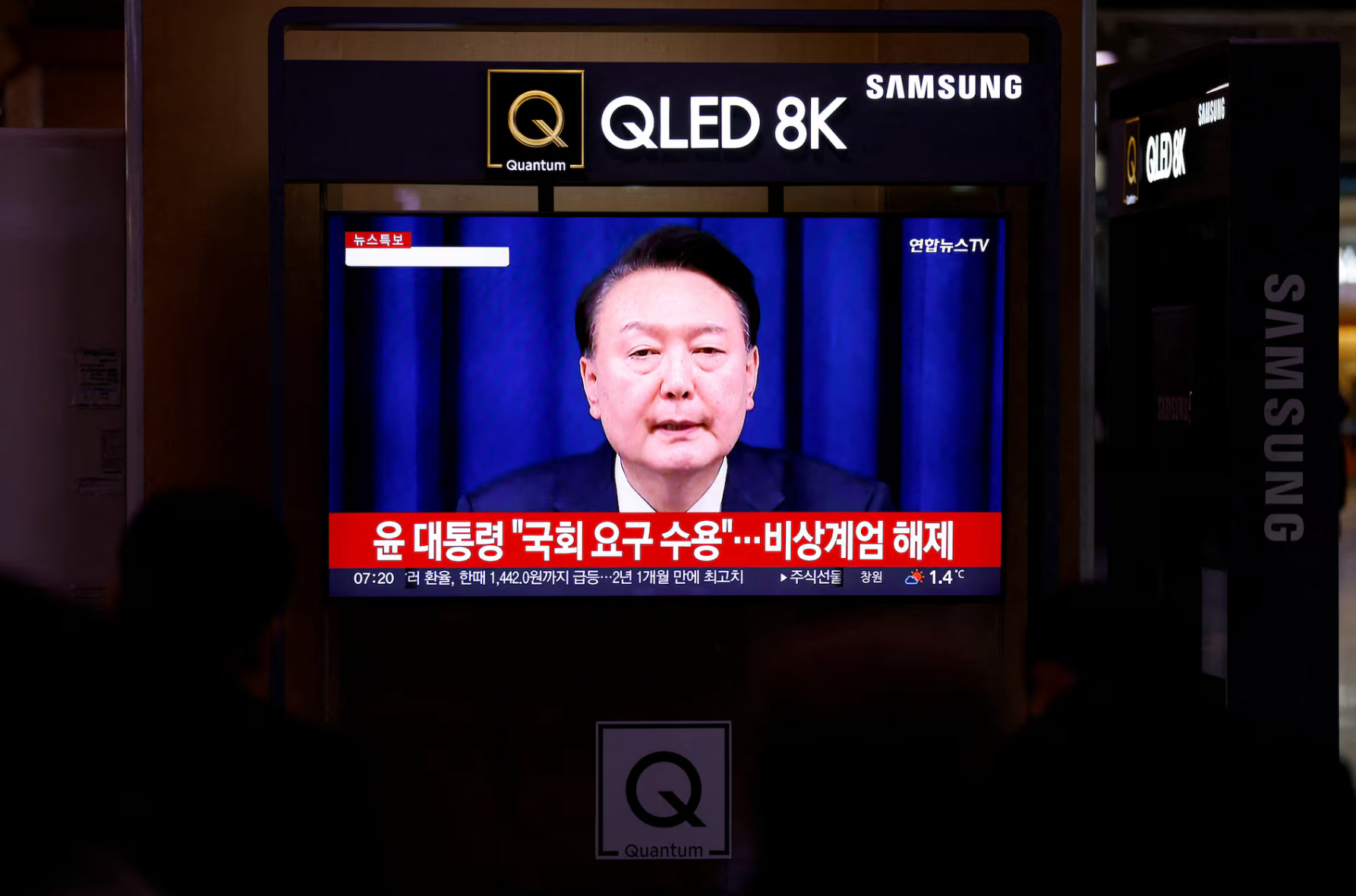How will the fate of South Korean President Yoon Suk Yeol be decided?
The Constitutional Court of South Korea will hold its first hearing tomorrow (December 27) in the case involving President Yoon Suk Yeol, after the National Assembly impeached him for declaring martial law on December 3.

What's next?
After his impeachment on December 14, Mr. Yoon's presidential powers were suspended, but he remained in office, with immunity from most charges except for rebellion or treason. The prime minister appointed by Mr. Yoon, Han Duck-soo, now serves as acting president.
South Korea's Constitutional Court must decide within 180 days whether to remove Mr. Yoon from office or reject the impeachment and restore his power. If the court removes Mr. Yoon or he resigns, a presidential election must be held within 60 days.
The court is scheduled to hold its first preparatory hearing on December 27.
Opposition Democratic Party lawmaker Jung Chung-rae, chairman of the National Assembly's Legislative and Judiciary Committee, is leading the case to remove Mr. Yoon.
A lawyer representing Mr. Yoon has not been announced, but his background as a prosecutor has fueled rumors that he will rely on former colleagues or even represent himself.
Kim Hong-il, a former prosecutor and head of the broadcasting regulator under Yoon, and former Constitutional Court spokesman Bae Bo-yoon are expected to join Yoon's legal team during the impeachment review and criminal investigation, according to local media.

What are the obstacles to a court ruling?
Under South Korea's constitution, six justices need to agree to remove an impeached president. The nine-member Constitutional Court currently has three vacancies, so the current justices would have to agree to remove Mr. Yoon.
The Constitutional Court said it could consider and hear arguments with just six judges.
Three vacancies are being filled by the National Assembly. The main opposition Democratic Party, which currently holds a majority in the National Assembly, is trying to fill them.
South Korea's National Assembly held hearings for two potential candidates earlier this week, but the ruling People's Power Party objected, arguing that acting President Han has no authority to appoint Constitutional Court judges.
There is precedent for an acting president appointing a Constitutional Court judge, as happened when former President Park Geun-hye was impeached in 2016-2017.

What will happen in court?
In South Korea's only previous impeachment impeachment, it took the court three months to remove Park in 2017.
This time, the terms of the two court judges expire in April, and legal experts predict the court will likely issue a ruling before then to minimize uncertainty.
In the past, Constitutional Court judges have not voted based on political leanings but on how they interpret the constitution on a case-by-case basis, scholars say.
Conservative efforts to rally public support for Mr. Yoon are not expected to influence the court's ruling, just as Ms. Park was removed from office despite conservatives continuing to hold protests to keep her in office, facing off against candlelight rallies to strip her of power.
In the case of Ms. Park, who also belongs to a center-right party like Mr. Yoon, the court voted unanimously to remove her from office, including several judges considered to have conservative views and two judges appointed by her.
Mr. Yoon is also facing criminal investigations related to the decision to impose martial law.
If convicted, he could ask the Constitutional Court to suspend the impeachment for 180 days. However, the court rejected a similar request in Ms. Park's case. In 2004, then-President Roh Moo-hyun, of a center-left party, was impeached for failing to maintain the political neutrality required of a senior official. The court dismissed the move after about two months, and Mr. Roh completed his five-year term.
